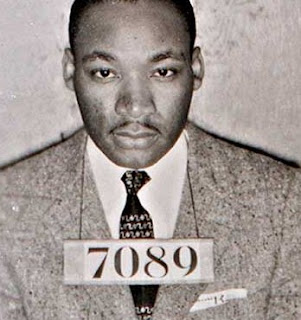
"'boarmus,' [the voice] said softly...one of the female-sounding ones.
"'I have been considering what you said to me last,' said boarmus, putting his hand on jacent's shoulder.
"'there is an unauthorized person with you.'
"'true. he is here as an example.'
"'an example of what?'
"'an example of the awe in which the people of tolerance hold you,' said boarmus. under his fingers, jacent shivered. very good, boarmus thought. let the boy be scared half to death...'an ordinary person of tolerance. not a provost. not a member of the inner circle.'
"'does he hold me in awe?'
"boarmus shook him. 'do you hold, ah...her...in awe, boy.'
"'oh, yes,' jacent shivered. 'yes, I do.'
"'in reverence?'
"jacent nodded and had to be prodded into speaking aloud. 'oh, yes.'
"'what does he think I am?' the voice managed to sound curious...
"'well,' said jacent from a dry mouth. 'some people think you're god. but others don't.'...
"'why don't they?' still curious, not yet angry.
"'well, because,' jacent said. 'god is omniscient. god knows the answers to all questions. if you are god, you'd know the answer to the great question. I mean, people say if you're really god, you'll answer that questions. then everybody will know you're god. everybody will know.'
"'how do you know I haven't answered the question?' another voice, this one edged with anger, displeasure. boarmus held on to the boy's shoulder, keeping him steady...
"'you'd have told us,' said jacent in a firm voice. 'in order that we might work toward our destiny properly. you see, that's how we know all gods before now were false, they never told us what our destiny really was. so, if you do tell us, you'll be the only true one. and the answer will be so self-evident, we'd all agree with it. because when a true god truly answers a question, that's what happens. everyone knows that.'
"'but I am god,' muttered a voice. 'we are god.'
"'of course,' quavered jacent. 'I already believe that. but everyone will believe it when you answer the great question.'
"'I don't need you to believe. I can make you do what I say even if you don't believe.' a sulky-sounding voice, this. 'god doesn't need to prove anything, not if god can make people do what god wants.'...
"'boarmus said, 'that's true. but if people only do what you say, then you'll only get what you're already capable of. gods create beings as tools to explore beyond what they already are and know. to create randomness, chaos, chance. to create discovery. you created man to discover new things for you, and man will discover them, if he knows you're god, if he wants to please you. that is what you created mankind for, wasn't it? after all, you're god, you're very busy. you created man as a kind of tool, to find things out for you."

















